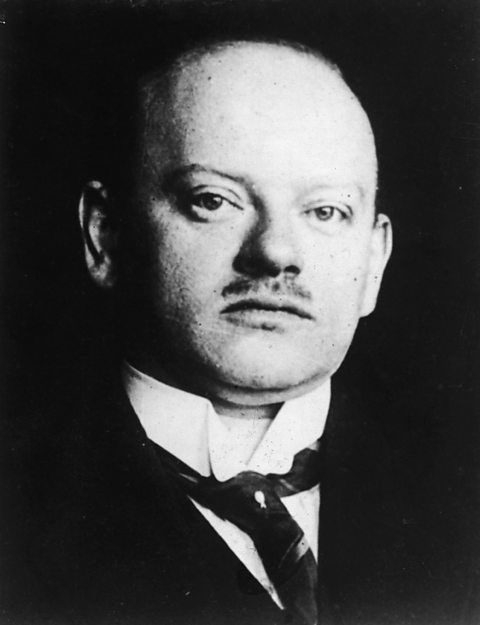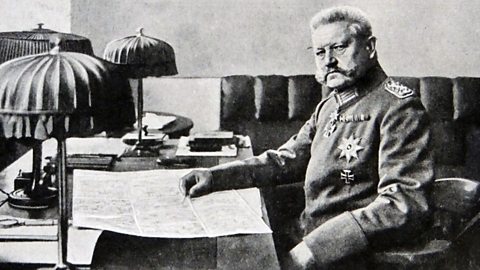Germany, 1925-1955: The people and the state
It is useful to divide the period 1925-1955 into three phases:
- The failure of democracy, 1925-1933
- Germany under the Nazis, 1933-1939
- World War Two and its aftermath, 1939-1955
The failure of democracy, 1925-1933

After World War One, Germany began a bold experiment with representative democracy A political system in which members of parliament are elected to represent the interests and opinions of the electorate.. All adult Germans were able to vote and the system of proportional representationAn electoral system in which parties gain seats in proportion to the number of votes cast for them. meant a wide range of views were given a voice in Parliament. There was also an elected President.
However, the legacy of defeat in the war, in the shape of crippling reparationMonetary compensation from an individual, group or state to compensate victims. payments and the military restrictions of the Treaty of VersaillesThe peace treaty signed by the Allies and Germany at the end of the First World War, on 28 June 1919., led to serious problems:
- the French army invaded the Ruhr region of Germany in order to collect what they were owed after Germany missed reparations payments
- in 1923 there was a hyperinflationVery rapid and high increase in the level of prices, combined with a fall in the value of money. crisis that left Germanyâs currency worthless
- in the first four years of the Weimar Republic there were three serious attempts to overthrow the government
Rescued by Gustav Stresemann and American loans, which enabled reparations payments to be made, Germany eventually recovered from these crises. By the late 1920s the Weimar Republic was a key member of the League of NationsAn international organisation where the leaders of countries could settle problems in the hope that they could thus avoid wars., a hotbed of modern culture and feeling increasingly prosperous, though its unstable governments left it vulnerable to any new crisis that might emerge.

During this period, the Nazi Party was established (in 1920) and Hitler became its leader. He tried to seize power in the Munich PutschA failed attempt in November 1923 by Hitler to overthrow the government of the Weimar Republic. in 1923, during the hyperinflation crisis and was briefly jailed. From then on, the party committed itself to winning power by legitimate means through elections. However, although its membership grew throughout the 1920s, by 1928 it had only a handful of seats in the ReichstagThe name of Germany's parliament. as Weimar politics stabilised and extreme voices like the Nazis fell on deaf ears.
A crisis emerged in 1929 as the Wall Street CrashIn October 1929 share prices on the Wall Street stock market in New York crashed, helping to cause the Great Depression. brought a worldwide depression. Germany suffered more than any other nation as a result of the recall of US loans, which caused its economy to collapse. Unemployment rocketed, poverty soared and Germans became desperate. This led to a chain of events that ended in the destruction of German democracy:
- With the government unable to win a majority in the Reichstag, laws could only be passed by presidential decreeAn order given by the President with the force of the law. (an order given by the President with the force of the law). As a result, not enough action was taken to tackle the economic and social consequences of the Depression and Germans increasingly began to look to the political extremes for answers.
- The Nazis benefitted from this the most, as a combination of policies with widespread appeal, a charismatic leader in Hitler and the violence of the SAAlso known as Storm Troopers or Brown shirts. A military style organisation of the Nazi party formed in 1921 under Hitler. helped make them the largest party in the Reichstag by the middle of 1932.
- In January 1933, Hitler was appointed Chancellor by President Hindenburg.